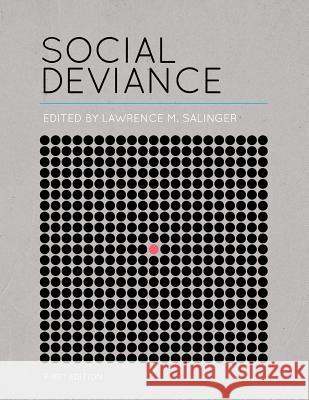Social Deviance (First Edition) » książka
Social Deviance (First Edition)
ISBN-13: 9781609275013 / Angielski / Miękka / 2012 / 372 str.
The study of norms and deviant behavior is central to a variety of disciplines including Sociology, Psychology, Criminology, and Criminal Justice. Social Deviance is an anthology designed to supplement traditional textbooks in these fields of study. It includes the original writings of sociologists, psychologists, criminologists, and others. The readings explain how deviance is studied, and teach students about specific behaviors that may be considered norm-violating.
Social Deviance is divided into six units: Definition and Theories of Deviance, Interpersonal and Property Crime, Organizational Crime, Substance Abuse, Sexual Deviance, and Emotional Deviance.
The first unit includes landmark works in the fields of Psychology and Anthropology by experts such as Sigmund Freud and Margaret Mead. These provide a strong theoretical foundation for readers. Later units cover specific topics such as the criminal consequences of childhood sexual abuse, hate crime, underage alcohol abuse, the sexual exploitation of children, and suicide among homosexual youth.
The readings represent various genres ranging from fact sheets compiled by governmental departments to newspaper and journal articles.
Social Deviance is an excellent companion to traditional textbooks. It helps students increase their understanding of what has been done by experts in various fields by allowing them to closely examine these experts' original works.
Lawrence M. Salinger is an Associate Professor of Criminology and Sociology at Arkansas State University in Jonesboro. He earned his B.A. in Social Ecology from The University of California, Irvine, his M.A. in Forensic Studies from Indiana University, and his Ph.D. in Sociology from Washington State University. He teaches a wide range of classes in Sociology and Criminology, such as: Social Deviance, Criminal Justice Systems, Criminology, Juvenile Delinquency, and Terrorism as a Social Movement. His current interests are in child abuse, children s advocacy, line-of-duty deaths of police officers, and rape victimization."











